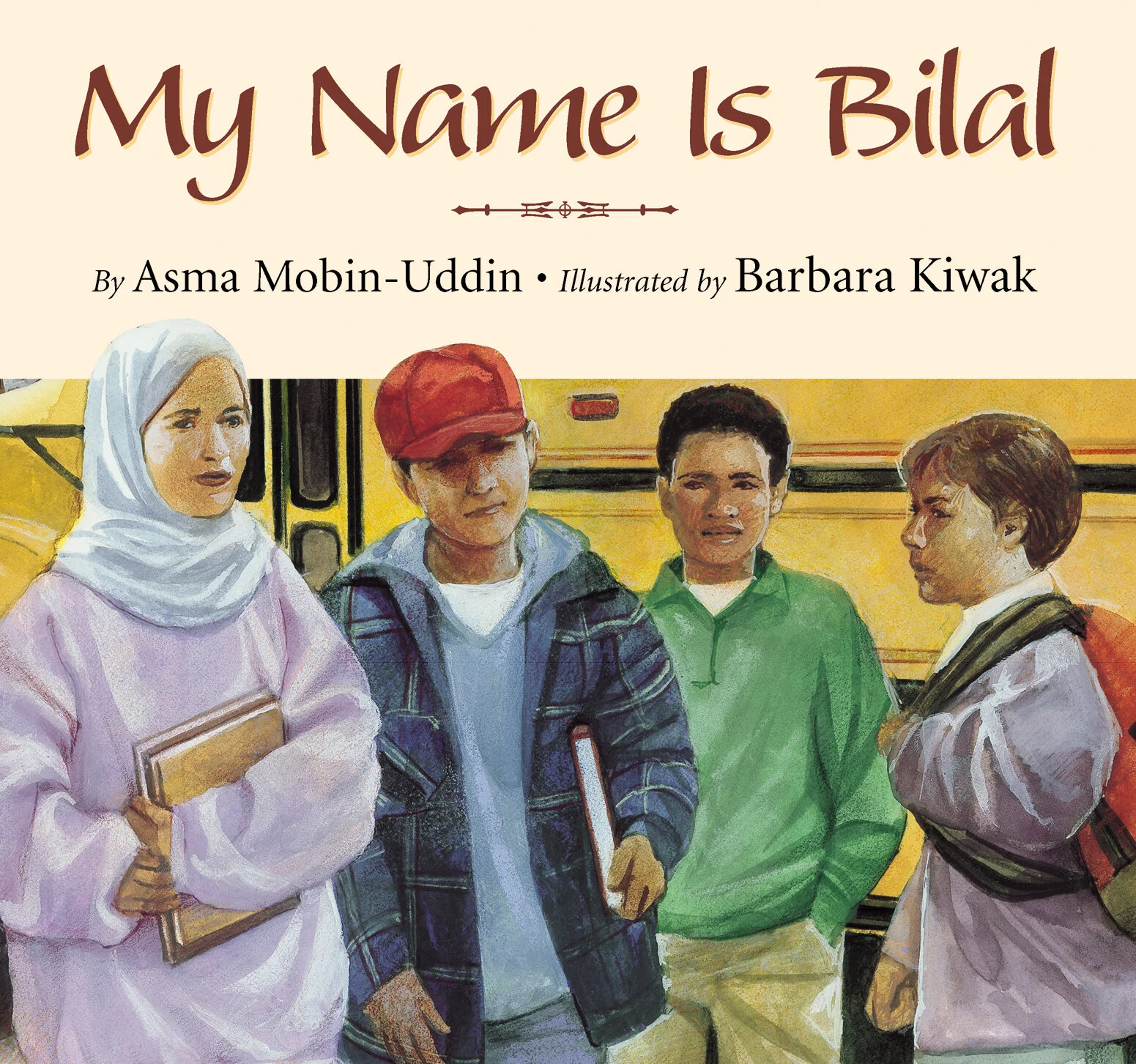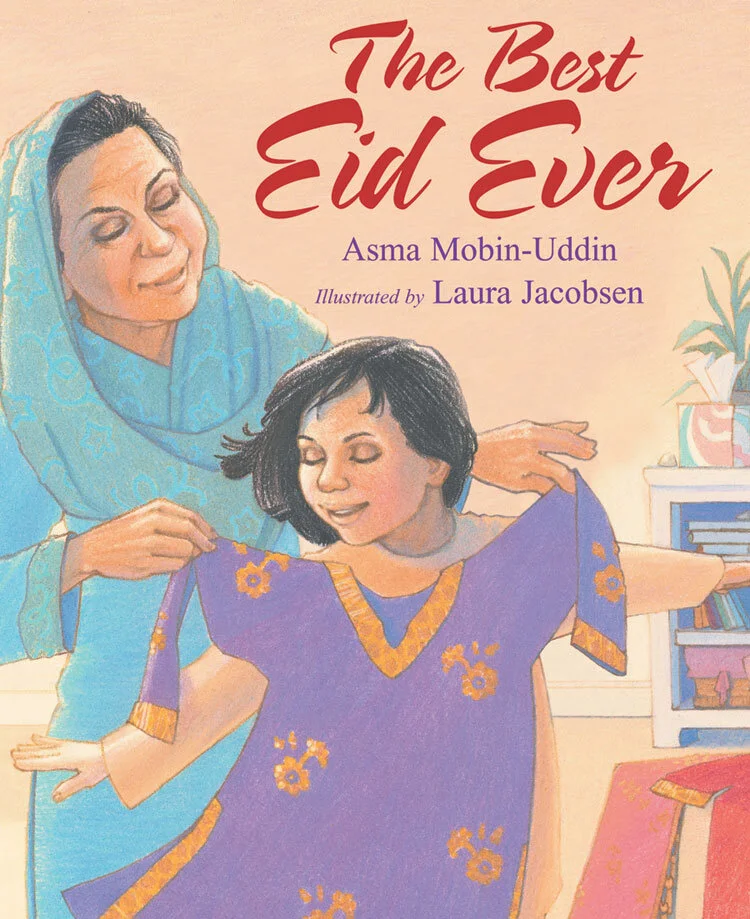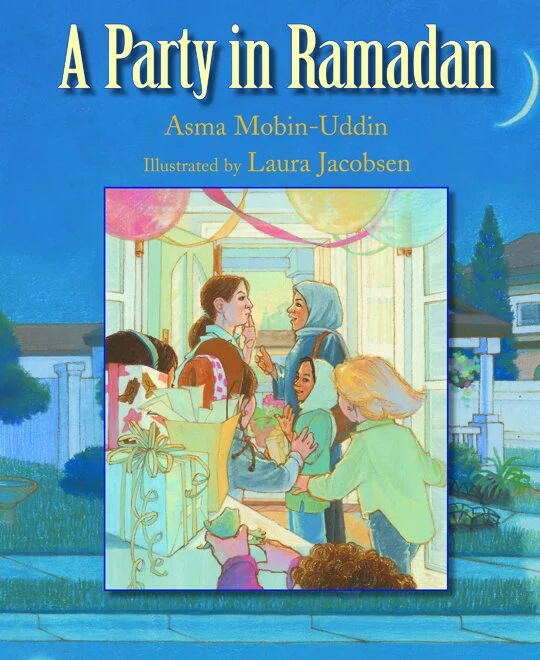-

My Name is Bilal
The New York Times and CNN featured My Name is Bilal in articles on how to teach kids to avoid racism and anti-Asian hatred. When Bilal and his sister transfer to a school where they are the only Muslim kids, they must learn how to fit in while staying true to their beliefs and heritage.
Bilal watches from a distance as his sister, Ayesha, walks toward their new school. He sees two boys following closely behind her. Suddenly, one of the boys grabs Ayesha's headscarf and gives it a tug. Bilal knows he should come to the aid of his sister, but he's frozen with fear. Is this what it will be like to be the only Muslim kids in school? Maybe it would be better if he hid that he is Muslim. Maybe then kids would leave him alone. But what about Ayesha? Mr. Ali, one of Bilal's teachers, and also Muslim, sees how the boy is struggling. He gives Bilal a book about the first person to give the call to prayer during the time of the Prophet Muhammad. That person was another Bilal: Bilal ibn Rabah. What Bilal learns from the book forms the compelling story of a young boy wrestling with his identity. Asma Mobin-Uddin's story about religious prejudice is heartfelt and compelling, and beautifully illustrated by Barbara Kiwak.
-

The Best Eid Ever
Aneesa comes up with a plan to help a refugee family celebrate Eid, the biggest holiday of the Muslim year.
It's Eid, and Aneesa should be happy. But her parents are thousands of miles away in Saudi Arabia for the Hajj pilgrimage. To cheer her up, her grandmother gives her a gift of beautiful clothes from Pakistan, one outfit for each of the three days of Eid. At the prayer hall, Aneesa meets two sisters who are not dressed in new clothes for the holiday. Aneesa discovers that the girls are refugees. With their father, they had fled from their war-torn country. Aneesa can't stop thinking about the girls and what Eid must be like for them. That's when Aneesa comes up with a plan to help the girls celebrate Eid and make it the best Eid holiday ever. School Library Journal says: "[A] beautifully composed story. . . . This is a welcome contribution, giving much-needed visibility to a celebration observed by over ten million people in North America." And Library Media Connection says: "After reading this book, children will have a greater appreciation for the Muslim culture and will have no problem realizing that love is an action word."
-

A Party in Ramadan
Leena is excited about fasting during the upcoming month of Ramadan and then faces a challenge when she is invited to a classmate’s party during the time she is not supposed to eat or drink.
Leena is looking forward to fasting along with her family this year, although she is still too young to fast every day during the Muslim holy month. Leena decides to fast on the day her aunt will be visiting, so that, together, the whole family can share the iftar dinner, eaten when the fast is broken. Then Leena receives an invitation to a classmate’s party, which is being held on that same day. Now she has a dilemma. She doesn’t want to miss the party, but she doesn’t want to miss fasting either. So Leena decides to go to the party but still fast and not eat or drink anything at all. But when Leena, who is the only Muslim child at the party, sees her friends enjoying fresh lemonade and chocolate cake, she feels thirsty and her stomach starts to growl. She gets tired from the outdoor activities and her head begins to hurt. Will she keep her Ramadan fast? Asma Mobin-Uddin’s charming story of a young Muslim girl determined to do the right thing is warmly illustrated by Laura Jacobsen in this Parents’ Choice Award book.